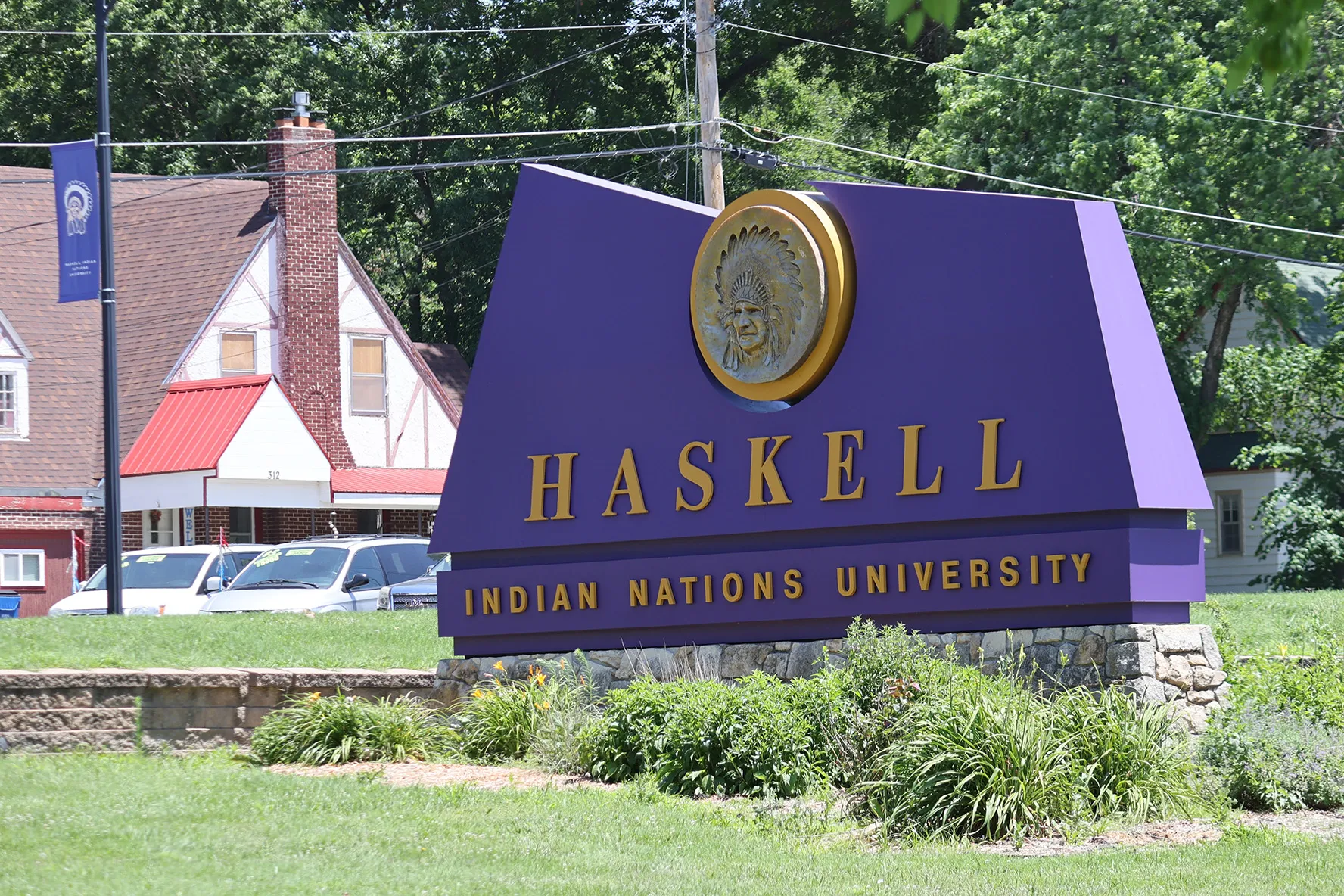
- Details
- By Levi Rickert
A new report from Brookings, released on Thursday, November 21, 2024, expresses concern that the incoming second Trump administration may undermine the significant efforts of the Biden administration’s Department of the Interior, led by Secretary Deb Haaland (Laguna Pueblo), to address the legacy of federal Indian boarding schools.
“With President-elect Donald Trump set to retake office in January, it is imperative that the steps President Biden and the Interior Department have taken do not wither on the vine. Given the destructive legacy of Trump’s last term for Indian Country—as well as the anti-diversity, assimilation-centric rhetoric he and his proxies expressed on the 2016, 2020, and 2024 campaign trails—it will be essential for congressional, state, philanthropic, and private sector actors to take steps to secure future investment and policy change to promote Native American welfare, prosperity, and self-actualization,” the authors of the report wrote.
The report co-authored by Robert Maxim (Mashpee Wampanoag Tribe) and Glencora Haskins calls on the federal government to commit to investments in Indian Country that reflect the profound trauma, economic damage, and social harms caused by the Indian boarding schools. These institutions, which sought to forcibly erase Native cultures and languages, left a lasting impact on tribal communities.
The report begins by highlighting President Joe Biden’s historic apology issued last month for the federal government's role in the Indian boarding school system, which spanned over 150 years and was part of a systematic campaign of cultural assimilation.
In addition to providing an overview of the history of federal Indian boarding schools, the report examines the Federal Indian Boarding School Investigative Report, Volume II, released by the Department of the Interior in June 2024. It also touches on current efforts to invest in Native American education across Indian Country today.
Maxim and Haskins argue that a widespread lack of awareness about the boarding schools' dark history is creating barriers to new investment in tribal education and cultural revitalization. Maxim, in an email to Native News Online, emphasized that the general public remains largely unaware of the extent of harm inflicted on Native students at these schools, and how that history continues to affect Native communities.
“With Donald Trump set to re-take the presidency in January, we think there is now a real risk that efforts by the federal government to grapple with the legacy of the Boarding Schools may come to a halt. In the piece, we discuss the harmful impact of Trump’s assimilationist rhetoric on the campaign trail, his promises to dismantle DEI-related policies, as well as problematic policy actions from his last administration, such as his so-called ‘patriotic education commission,’” Maxim said in his email.
The report addresses how most schools in the country don’t teach Native American history after 1900 that results in a misinformed public when it comes to Native American issues today.
“Moreover, the current wave of anti-DEI policies and other efforts to suppress aspects of U.S. history in schools and public discourse threaten recent gains such as the boarding schools report. Examples of these policies include the first Trump administration’s “patriotic education” commission, state efforts to ban so-called “divisive concepts” in educational settings, and proposals such as Project 2025’s plan to cut funding for “woke” schools. Each of these ideas puts emerging efforts to teach Native American history at risk.” the report states.
The report cites the Biden-Harris administration’s historic levels of investments into Indian Country since taking office. However, the authors stress the need for a continuation of the efforts to keep investing into Indian Country, create awareness of the most historical issues that still affect Native Americans today.
“To do so, Congress should pass an “Indigenous Education for All” law that ensures Native American history, including 20th and 21st century history, is taught at all schools that receive federal funding,” the report suggests.
More Stories Like This
Native News Weekly (August 25, 2024): D.C. BriefsNCAI Releases Sttatement on the Passing of Rev. Jesse Jackson
Colusa Indian Energy Participates in Port of Quincy Town Hall on Columbia Basin Power Project
Q&A: Jingle Dress Dancer Answered Call to Ceremony in Face of ICE Violence
Haaland Gets First Hand Look at Efforts to Address Homelessness in Albuquerque
Help us defend tribal sovereignty.
At Native News Online, our mission is rooted in telling the stories that strengthen sovereignty and uplift Indigenous voices — not just at year’s end, but every single day.
Because of your generosity last year, we were able to keep our reporters on the ground in tribal communities, at national gatherings and in the halls of Congress — covering the issues that matter most to Indian Country: sovereignty, culture, education, health and economic opportunity.
That support sustained us through a tough year in 2025. Now, as we look to the year ahead, we need your help right now to ensure warrior journalism remains strong — reporting that defends tribal sovereignty, amplifies Native truth, and holds power accountable.
 The stakes couldn't be higher. Your support keeps Native voices heard, Native stories told and Native sovereignty defended.
The stakes couldn't be higher. Your support keeps Native voices heard, Native stories told and Native sovereignty defended.
Stand with Warrior Journalism today.
Levi Rickert (Potawatomi), Editor & Publisher


